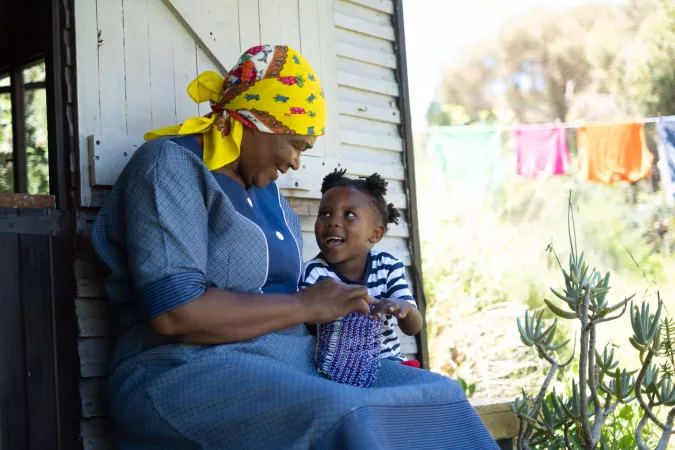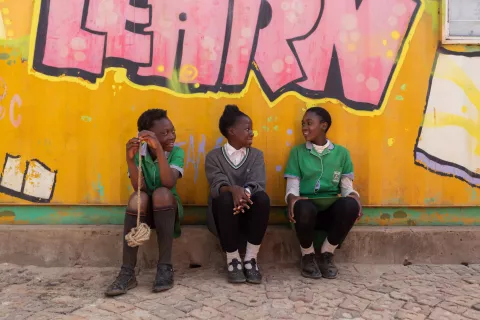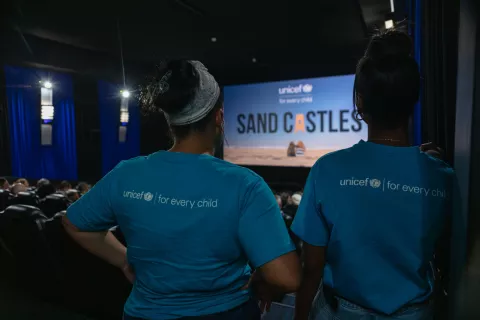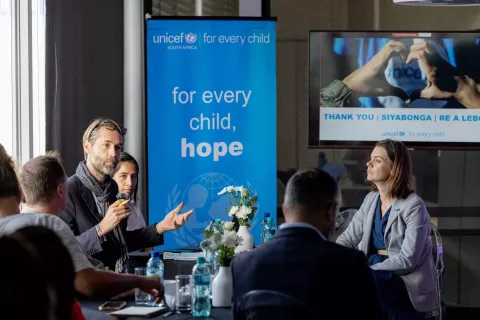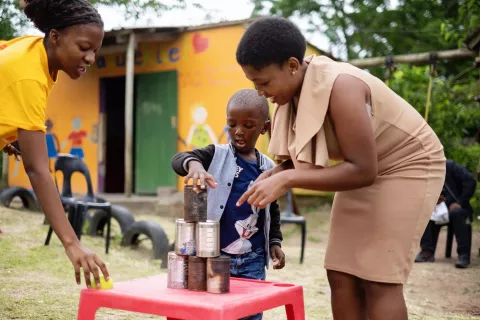As learners return to school, parents urged to embrace the #PowerOfPlay
UNICEF launches the #PowerOfPlay campaign to highlight the importance of play in children’s learning and development, and for family mental wellbeing.
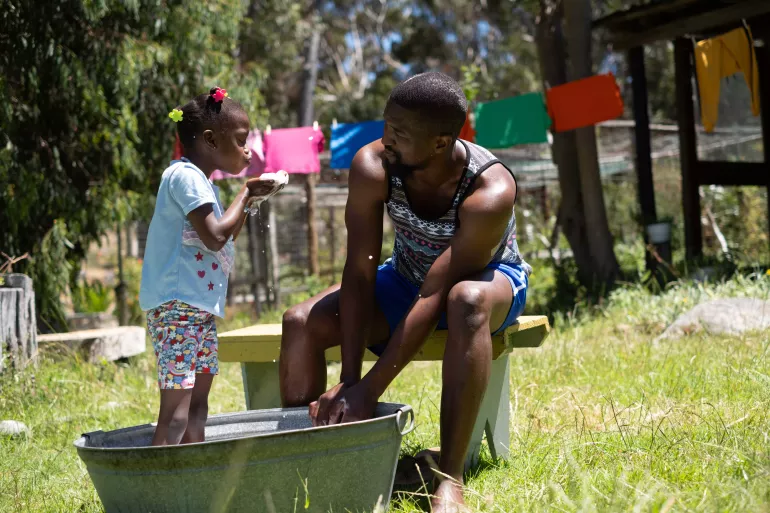
PRETORIA, 16 JANUARY 2024 – Recommended for every child, and their parents is the slogan behind UNICEF’s 5-week campaign, supported by the LEGO Foundation, that launches today and aims to reach more than 2 million parents across South Africa with the #PowerOfPlay message.
Impressing on parents that they are their children’s first teachers, the communications campaign coincides with the reopening of schools as a prompt for caregivers to improve their knowledge about what play is, how it benefits children’s development, as well as families’ mental health – and that play can happen ‘anytime, everywhere’.
“Young children learn first and best through engaging and nurturing play with the adults in their lives,” says UNICEF South Africa Representative, Christine Muhigana. “This campaign aims to support parents to do just that as the year kicks off and children return to school,” added Muhigana.
Through a series of videos, posters, animations, radio content and on-the-ground activations, the #PowerOfPlay campaign focuses on providing information about how play improves child development and shares practical ideas on how to integrate play into family life.
A May 2023 UNICEF study on ‘Parent Knowledge, Attitudes and Practices Regarding Play-based Learning in Children from Birth to Six-Years-Old’ found that almost all parents see play as important, but many do not have time to play with their children. The study found that caregivers are most stressed by trying to meet the basic needs of their families, are often isolated and lack social support and confidence in their parenting.
“Because of the challenges many parents and caregivers face, play can feel like yet another stress in their lives,” says Muhigana. “That’s why we are sharing the message that play is not another thing to do, but another way of doing things,” added Muhigana.
The same study found that children under two are seen as being too young for books and play, and that play materials at home are mostly bought, with young children seldom playing with household, found or home-made items. The #PowerOfPlay campaign materials share ideas about effective ways to integrate play into families’ everyday lives and highlight the important role of traditional games, encouraging parents to play your way, and give your child the best start in life.
Play-based-learning is one component of a holistic approach to parenting support that delivers results for children. Global research shows the cost of delivering parenting interventions per family as roughly comparable to a routine childhood vaccination programme. The positive impact includes reducing violence against children, improving mental wellbeing and in-turn lowering the related burden on health systems. Educational achievements and countries’ longer-term economic outcomes can also improve.
UNICEF is calling for greater support for parenting programmes through committed resources and effective information sharing and referral systems, including at primary healthcare facilities.
#####
Notes to Editors:
The #PowerofPlay campaign runs in Xhosa, Zulu and English languages, including across print, radio, digital and social media channels.
UNICEF does not endorse any company, brand, product or service on any materials.
Media contacts
Additional resources
About UNICEF
UNICEF works in some of the world’s toughest places, to reach the world’s most disadvantaged children. Across more than 190 countries and territories, we work for every child, everywhere, to build a better world for everyone.
Follow UNICEF South Africa on Twitter, Facebook, Instagram, YouTube, LinkedIn and TikTok.

